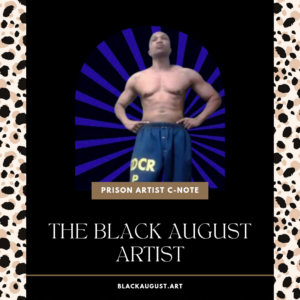According to the Chicago Data Portal, Austin leads all community areas with the highest number of homicides in 2024.
Along with the highest use of opioids and overdoses, these factors contribute to chronic stress, complex trauma and pervasive anxiety within the community. Data also shows that individuals in marginalized communities are disproportionately affected by mental health conditions such as depression, anxiety, and PTSD.
All of this is exacerbated during the holidays. That’s why Bethel New Life – a nonprofit organization on Chicago’s West Side that seeks to empower and rebuild West Side neighborhoods through community-driven approaches – will host its “Empowering Black Male Youth: Navigating Mental Health and Wellness Together” dinner event tonight as a way to address it.
The Austin Weekly News contacted Aniki Coates, Bethel’s senior manager of horticulture and wellness and host of the event to discuss mental health on the West Side.
AWN: Why is this panel discussion necessary?
Coates: Black male youth in our communities face a disproportionate burden of mental health issues due to factors such as a high risk of trauma exposure, systemic racism, socioeconomic disparities, complex grief and loss and cultural stigma. By engaging in open conversations with our youth and community, we are helping to destigmatize seeking help and fostering a culture of compassion. While our primary focus is on Black mental health, we are committed to inclusively addressing the needs of all individuals living in Austin and other communities we serve.
AWN: Are mental health issues in the Black community/Austin, Garfield, Lawndale, outside of Bethel, being addressed? If not, what needs to be done and by whom?
Coates: At Bethel New Life, we recognize that while there have been commendable efforts to address mental health issues within the Black community in Austin, Garfield, and Lawndale, significant challenges persist. Issues like food insecurity, limited access to culturally sensitive mental health services, and enduring stigma continue to weigh heavily on our community’s mental well-being. Addressing these mental health challenges requires a collaborative and multifaceted approach. Sixty percent of attendees [of our dinners] have followed up with a mental health provider.
AWN: Tell me about your panelists.
Coates: With a Ph.D. in Policy Studies in Urban Education from the University of Illinois Chicago, Dr. Elisha Hall, the founder of the African and Indigenous Knowledge Institute, is dedicated to restoring African healing legacies and fostering self-determination through storytelling and character development for healing both youth and adults. Also, with a background in restorative justice, panelist Jacob Walls, a mental health professional at GRO Community, which specializes in trauma-informed care for boys and men of color, will focus on mental health and wellness, stress management, trauma recovery, and life transitions.
AWN: Why is it taking place this month?
Coates: Hosting our mental wellness panel in December allows us to address the heightened emotional challenges that often accompany the holiday season. For many, this time of year can bring increased stress, anxiety, and feelings of isolation.
AWN: Do you have contact numbers or hotlines for people to call who may need to speak with someone, especially during the holidays?
Coates: At our community dinners, we ensure that all attendees have access to essential mental health resources. We provide contact information for local hotlines and support services, including:
- National Suicide Prevention Lifeline: 1-800-273-TALK 8255
- NAMI Chicago: 833-626-4244
- Crisis Text Line: Text HOME to 741741
- Bethel New Life Wellness Office and Food Pantry: 773-887-3630
- GRO Community Mental Health Services: 773-253-8385
- New Life Knew Solutions: 773-309-2050
- Kaleidoscope: 773-278-7200
- Healthcare Alternative Systems: Phone: 312-850-0050
- Catholic Charities Encompassing Center: 312-655-7700
- Black Mental Health Alliance Hotline: 410-338-2642
AWN: Is there anything of note you’d like to point out, culturally speaking?
Coates: Black [people], in particular, are more likely to identify and describe physical symptoms related to mental health problems. A healthcare provider who is not culturally competent might not recognize these as symptoms of a mental health condition, [according to] the National Alliance on Mental Health NAMI. Furthermore, according to the National Alliance on Mental Health NAMI, in 2020, 10.4% of Black adults in the U.S. had no form of health insurance, which severely limits access to mental health services. Despite the needs, only one in three Black adults with mental illness receive treatment, according to the American Psychiatric Association’s Mental Health Facts for African Americans guide. Dr. Hall and Jacob Walls, along with other attending black mental health professionals, exemplify the collaborative spirit of our community partnerships, bringing diverse perspectives and expertise to address the mental health needs of Austin’s residents.
The event is scheduled for 6 to 8:30 p.m. at Amberg Hall at Bethel New Life, 1150 North Lamon.






